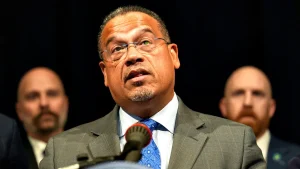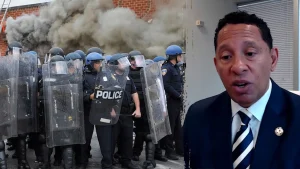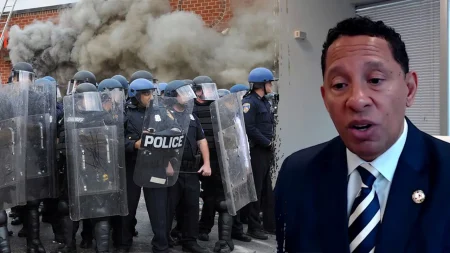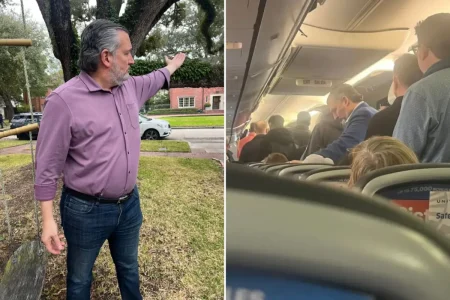Trump’s Dinner Gala for Saudi Crown Prince: A Gathering of Notable Figures
The state dinner hosted by President Donald Trump in honor of Crown Prince Mohammed bin Salman of Saudi Arabia represented a significant diplomatic engagement between the United States and Saudi Arabia. The exclusive event brought together a carefully selected assembly of government officials, business leaders, and prominent figures from various sectors, all gathered to commemorate and strengthen the longstanding relationship between the two nations. The guest list reflected the administration’s priorities and connections, featuring representatives from key industries including defense, energy, finance, and entertainment. As attendees arrived in formal attire at the White House, the evening symbolized not just a diplomatic formality but also the complex web of political, economic, and strategic interests that define the U.S.-Saudi relationship.
Among the most notable government representatives were key members of Trump’s cabinet and inner circle, demonstrating the administration’s approach to foreign policy and diplomatic relations. Senior advisors and officials responsible for national security, international relations, and economic policy were present, underscoring the multifaceted nature of U.S.-Saudi engagement. The dinner provided these officials an opportunity to engage directly with their Saudi counterparts in a less formal setting than official meetings, potentially facilitating more candid conversations about mutual interests and concerns. This gathering of political elites highlighted the personal diplomacy style that characterized President Trump’s approach to international relations, emphasizing direct engagement with foreign leaders and their delegations in settings designed to foster personal connections alongside political discussions.
The business community was particularly well-represented at the dinner, reflecting the significant economic ties between the United States and Saudi Arabia. Leaders from major corporations across the energy sector, defense industry, technology firms, and financial institutions were among the attendees, many of whom had substantial business interests in Saudi Arabia or were potentially positioned to benefit from increased economic cooperation between the two nations. Their presence underscored how diplomatic events of this nature serve not just political purposes but economic ones as well, creating networking opportunities and informal spaces for business discussions that might later translate into formal agreements or partnerships. The inclusion of these business leaders demonstrated the administration’s emphasis on economic diplomacy and its efforts to leverage diplomatic relationships to advance American business interests abroad.
Cultural figures and celebrities also graced the event, adding a dimension of soft power and public interest to the diplomatic proceedings. Representatives from entertainment, sports, and other high-profile sectors attended, bringing additional attention to the gathering and highlighting the cultural exchanges that form part of international relationships. These guests, while perhaps less directly involved in policy discussions, nonetheless played a role in the broader picture of U.S.-Saudi relations, embodying the cultural connections that exist alongside political and economic ties. Their presence also reflected the celebrity-oriented nature of the Trump administration, which often incorporated high-profile personalities into formal diplomatic functions in ways that previous administrations had done less frequently.
The Saudi delegation accompanying Crown Prince Mohammed bin Salman included key ministers, advisors, and business leaders who represented various facets of Saudi Arabia’s government and economy. Their participation in the dinner reflected the Crown Prince’s vision for Saudi Arabia’s future, particularly his ambitious economic diversification plan known as Vision 2030, which seeks to reduce the kingdom’s dependence on oil and develop public service sectors such as health, education, infrastructure, recreation, and tourism. The delegation’s composition offered insights into Saudi priorities and the specific areas where they sought to strengthen cooperation with the United States. The dinner provided these Saudi officials with valuable opportunities to engage directly with their American counterparts and potential business partners in an environment designed to foster relationship-building.
Beyond the formal attendee list, the state dinner revealed much about the nature of diplomacy in the modern era, where official functions serve multiple purposes simultaneously: strengthening political alliances, facilitating business connections, generating media coverage, and creating symbolic gestures of friendship between nations. The carefully orchestrated event, with its blend of political, economic, and cultural figures, encapsulated the multidimensional relationship between the United States and Saudi Arabia – a relationship characterized by shared strategic interests, economic interdependence, occasional political tensions, and cultural exchanges. As guests departed following the lavish dinner, they left having participated in not just a social occasion but a significant moment in the ongoing narrative of U.S.-Saudi relations, one that would continue to evolve through both formal diplomatic channels and the personal connections established during events like this prestigious White House dinner.










